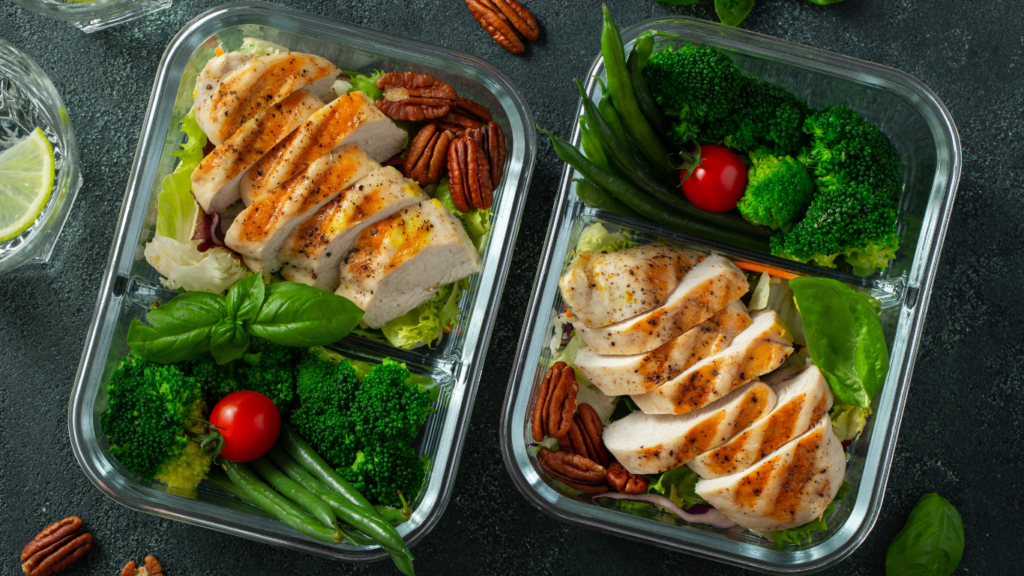Understanding Protein And Its Importance
Protein serves as the building block of muscles, tissues, and enzymes in the body. It’s made up of amino acids, which are essential for processes like muscle repair and growth. Athletic strength largely depends on these processes, making protein a critical nutrient for active individuals.
I notice that many athletes consume inadequate or poor-quality protein, which can hinder performance. High-quality protein sources like:
- lean meats
- eggs
- fish
- dairy
- plant-based options (e.g., quinoa, lentils)
provide essential amino acids needed for recovery and strength. Daily protein requirements for athletes often exceed general recommendations. For example, active individuals might benefit from 1.2–2.0 grams per kilogram of body weight daily, depending on their training intensity. Spacing protein intake evenly across meals within a day optimizes muscle protein synthesis.
Timing plays a significant role too. Studies suggest consuming 20–30 grams of protein within 30 minutes post-workout enhances muscle recovery. Combining protein with carbohydrates during this window further supports glycogen replenishment and recovery.
Understanding protein’s role helps athletes make informed dietary choices, ensuring their bodies receive adequate support for strength and performance gains.
How Protein Supports Athletic Strength
Protein plays a pivotal role in developing and maintaining athletic strength by aiding muscle repair, growth, and recovery. Its specific functions directly impact training adaptations and overall performance outcomes.
Role In Muscle Repair And Growth
- Protein repairs muscle fibers damaged during intense physical activity.
- Amino acids, the building blocks of protein, facilitate tissue repair and stimulate muscle protein synthesis.
- Adequate intake ensures micro-tears in muscles heal efficiently, which leads to increased muscle size and strength over time.
- High-quality protein sources like chicken, eggs, fish, and tofu provide the essential amino acids necessary for growth and recovery.
- Protein timing also affects repair and growth. For optimal results, I consume 20–30 grams of protein post-workout within 30 minutes to support muscle recovery and enhance gains.
- For prolonged benefits, I maintain balanced protein intake across all meals to ensure a continuous supply of amino acids.
Enhancing Performance And Recovery
Protein supports energy metabolism and enhances physical recovery, making it essential for sustained performance. By reducing muscle soreness and inflammation, it accelerates recovery, allowing athletes to train more effectively. Combining protein with carbohydrates after exercise improves glycogen replenishment, further aiding recovery.
The consumption of protein-rich foods like Greek yogurt, lean beef, or plant-based protein powders post-exercise helps me recover faster, especially after high-intensity workouts or endurance events. Regularly meeting protein requirements tailored to my training regimen boosts my stamina and ensures my body functions optimally during physical exertion.
Types Of Protein Sources For Athletes

Athletes need diverse, high-quality protein sources to sustain muscle repair and strength building. These sources include animal-based proteins, plant-based proteins, and protein supplements.
Animal-Based Proteins
Animal-based proteins provide complete amino acid profiles essential for muscle repair and growth. Lean meats like chicken, turkey, and beef offer high protein content along with vital nutrients such as iron and zinc. Eggs deliver about 6 grams of protein each, along with essential amino acids like leucine, which supports muscle synthesis. Fish and seafood, including salmon and tuna, supply not only protein but also omega-3 fatty acids that reduce inflammation. Dairy products such as Greek yogurt, milk, and cottage cheese combine protein with calcium, enhancing bone strength.
Plant-Based Proteins
Plant-based proteins offer versatile options for athletes, especially those following vegan or vegetarian diets. Legumes like lentils and chickpeas provide approximately 15 grams of protein per cooked cup, along with fiber to aid digestion. Quinoa, a complete plant protein, delivers around 8 grams per cup. Soy-based foods like tofu and edamame supply 10–20 grams of high-quality protein per serving, mimicking animal proteins in amino acid composition. Nuts and seeds, including almonds and chia seeds, contribute protein and healthy fats. For variety, protein-rich grains like farro and barley can complement meals.
Protein Supplements
Protein supplements are convenient for meeting protein needs, especially post-workout or during busy schedules. Whey protein, derived from milk, is fast-absorbing and ideal for muscle recovery. Casein, also milk-based, digests slowly, making it suitable for overnight repair. Plant-based protein powders, such as pea or rice protein, cater to dietary restrictions while providing around 15–25 grams per serving. Blended protein powders combine different sources for a balanced amino acid profile. Athletes often use supplements to ensure precise intake or complement whole food sources.
Optimal Protein Intake For Strength Building
Ensuring optimal protein intake is essential for building strength and enhancing athletic performance. Focusing on quantity, timing, and consistency maximizes muscle development and recovery.
Determining Daily Requirements
Daily protein requirements depend on body weight, activity level, and training intensity. For strength-building athletes, 1.6–2.2 grams of protein per kilogram of body weight supports muscle repair and growth. For example, a 70 kg athlete may benefit from consuming 112–154 grams of protein daily. I adjust my intake when transitioning between maintenance, bulking, and cutting phases to align with performance goals.
Timing Protein Consumption
Distributing protein intake evenly across meals supports constant muscle protein synthesis. Consuming 20–40 grams of protein every 3–4 hours optimizes muscle repair and growth during the day. Post-workout meals are especially vital, as ingesting 20–30 grams of protein within 30 minutes of exercise, combined with carbohydrates, accelerates recovery. For instance, after workouts, I often rely on options like whey protein shakes or lean chicken to align with these timing strategies.
Potential Risks Of Overconsumption
Consuming excessive protein can lead to several health concerns, especially when intake significantly exceeds recommended levels without balancing other nutrients. The body may store surplus protein as fat, increasing body weight if energy expenditure doesn’t match high-calorie intake.
Kidney strain is another potential issue. Consistently high protein intake can place stress on kidney function, particularly in individuals with preexisting kidney conditions. This occurs as the body processes excess nitrogen from amino acid breakdown, which increases renal workload.
Dehydration risk rises with high protein consumption. The body uses additional water to eliminate nitrogen, leading to potential fluid imbalance if hydration isn’t adequately maintained.
Digestive issues, such as constipation or diarrhea, can result from overconsumption, particularly when dietary fiber is lacking. An imbalanced diet focusing on protein while neglecting carbohydrates can disrupt normal digestion.
Mineral loss may occur over time due to increased calcium excretion, particularly when protein intake comes predominantly from animal-based sources. This can impact bone health, especially in athletes engaging in high-impact exercises.
By understanding these risks, athletes can optimize protein intake without compromising overall health and performance.





